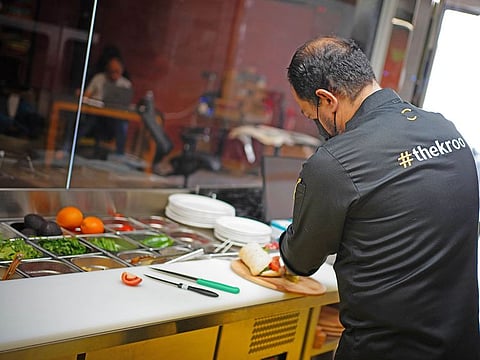In Dubai, virtual F&B brands are turning out to be next big thing after cloud kitchens
F&B brands turn to online-only to speed up launches and get maximum attention during Expo

Dubai: In Dubai, the business of food and beverage is going virtual – or at least a good part of it.
Not willing to wait around for a good location to launch a new restaurant? Don’t worry, go virtual.
Want to test out a new food concept to see whether it has a chance to click? Virtual is the way to do it.
Aiming to introduce a new F&B offering to a specific community or neighbourhood in the city? Yes, you guessed right, think virtual.
In recent weeks, a wave of ‘virtual-only’ F&B concepts have been launched in the city, as the food business makes one of the biggest comebacks ever after a harrowing 2020. Not just newly launched F&B focussed businesses, even established names are giving virtual brands a try to broaden their mix.
F&B takes a virtual detour
This is how it works – a new F&B brand is introduced complete with its own menu and unique points. But instead of a consumer landing up at a restaurant or café under that brand’s name, all of the action happens on line. Consumers have to ‘discover’ the brand online, place orders and then wait for the delivery. The food gets prepared offsite, at a ‘cloud kitchen’, either owned by the brand promoters directly or by third-party operators.
They won’t have any trouble finding a cloud kitchen in Dubai. Apart from online delivery services, cloud kitchens had the biggest growth during the pandemic phase last year. As restaurants were shut down or operating on a limited dining-in capacity, online food orders and deliveries had an immediate upturn. To cook all those meals, cloud kitchens became the de facto choice.
Disruption on all fronts
“We’ve taken a different approach and built virtual brands that cater to specific communities - based on data analytics that tell us exactly what customers want,” said Jihad El-Eit, founder and CEO of Kaykroo, which operates brands such as Manou’she Street, Bak Bak and Wrapped. “We are seeing a shift towards virtual restaurants from both types of operators, although it is still being led by startups that are more tech-driven in nature.
“While the element of food is very important in the success of any F&B brand, when it’s being developed as a digital concept, the tech is equally important. Through the cloud kitchen model, the pace at which new concepts can be developed and made available to customers is much quicker and more cost-effective. There really isn’t a reason not to give people exactly what they want.
“Expo 2020 will no doubt take this to the next level with the 25 million expected visitors. We really look forward to bringing great food to these new communities, and have made one of our most popular and long-standing brands, Man’oushe Street, available on-site at Expo through our partnership with Talabat.”
Max visibility
It is no coincidence that many of the virtual food concepts are launching just before or during the Expo. With the rush of visitors expected, these F&B businesses believe there is no time like the present to create maximum exposure for their new brands.
“With the shift towards on-demand food delivery, Dubai’s F&B market advanced by 5-10 years in 2020,” said Rohith Muralya, Director - Concept Cuisine at SFC Group. “The ability to test new concepts online becomes much cheaper as you require minimal capital expenditure. I would say it’s easily comparable to launching a brand new restaurant in a mall where there is already high traffic. Customers appreciate good food and if you give your ‘virtual’ product the necessary care, you can create a successful brand no matter how crowded and saturated the F&B market is.”
Not just for startups
Virtual F&B brands do require a keen understanding of tech and the use of consumer data. Plus, they have to make sure they have the systems in place that can process an order, prepare it and have ot delivered in the shortest possible time.
One would think that the virtual F&B space will only attract newcomers wanting to try their luck in Dubai’s hyper-competitive F&B space. But that’s not how it is in reality.
“Virtual brands are delivery-centric food concepts,” said Tamara Dabbas, Chief Revenue Officer at GrubTech, a company that specializes in offering extensive tech-focussed support systems to cloud kitchen operators. “They tend to have a “fail-fast” approach to provide restaurateurs with the ability to generate additional revenue using their existing supply chains.
“This results in creating new, cost-effective brands and new menus to keep up with unpredictable customer demands. Customers have been receptive to these trends. In fact, a whopping 84 per cent of customers who ordered from a virtual brand noted that they haven't previously done so from the original restaurant.”
Clearly, if customers like what they are being served, better the chances for a new F&B brand to make a success of it. It’s all in what shows up on the plate, eventually.
Sign up for the Daily Briefing
Get the latest news and updates straight to your inbox







